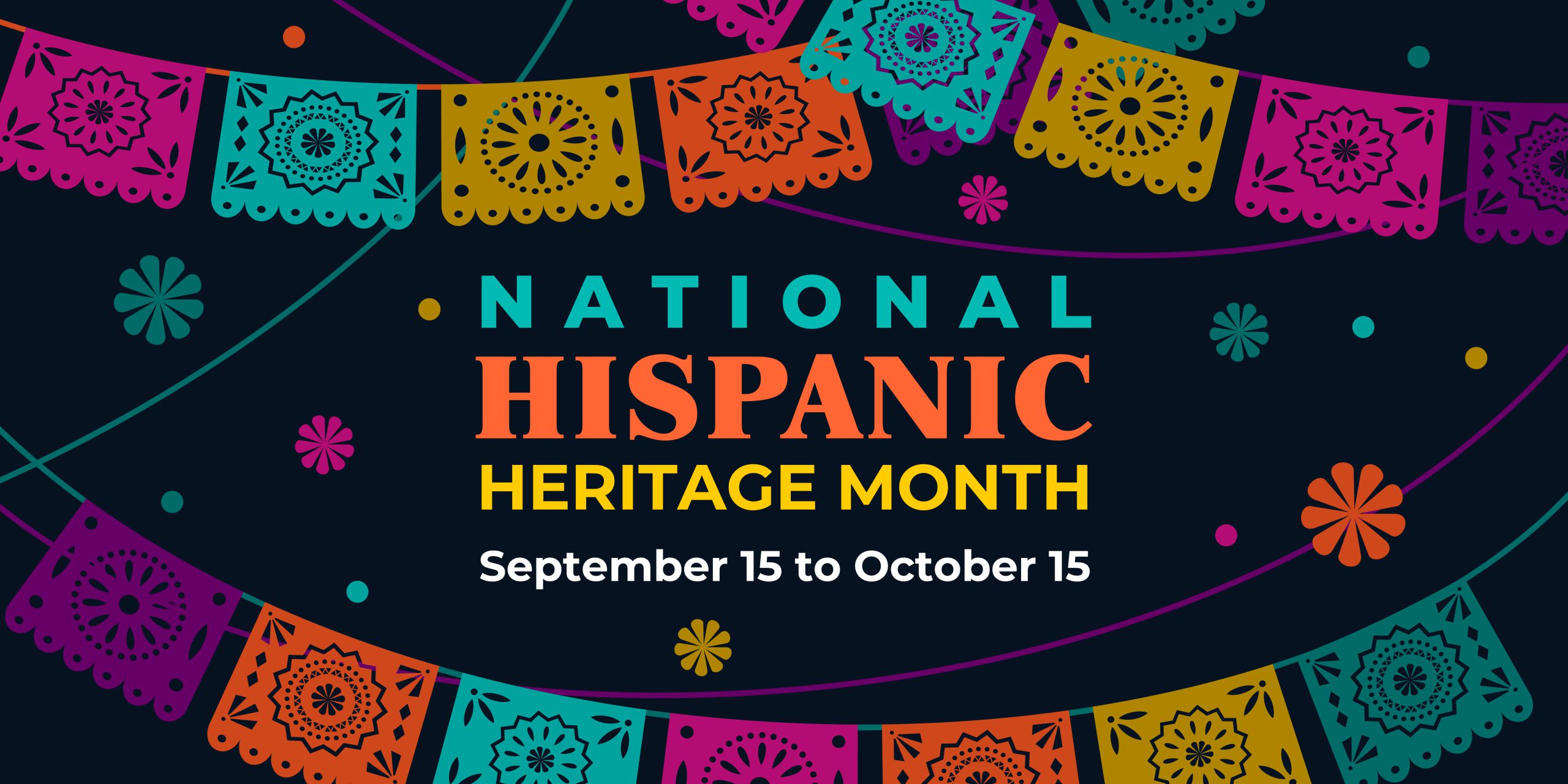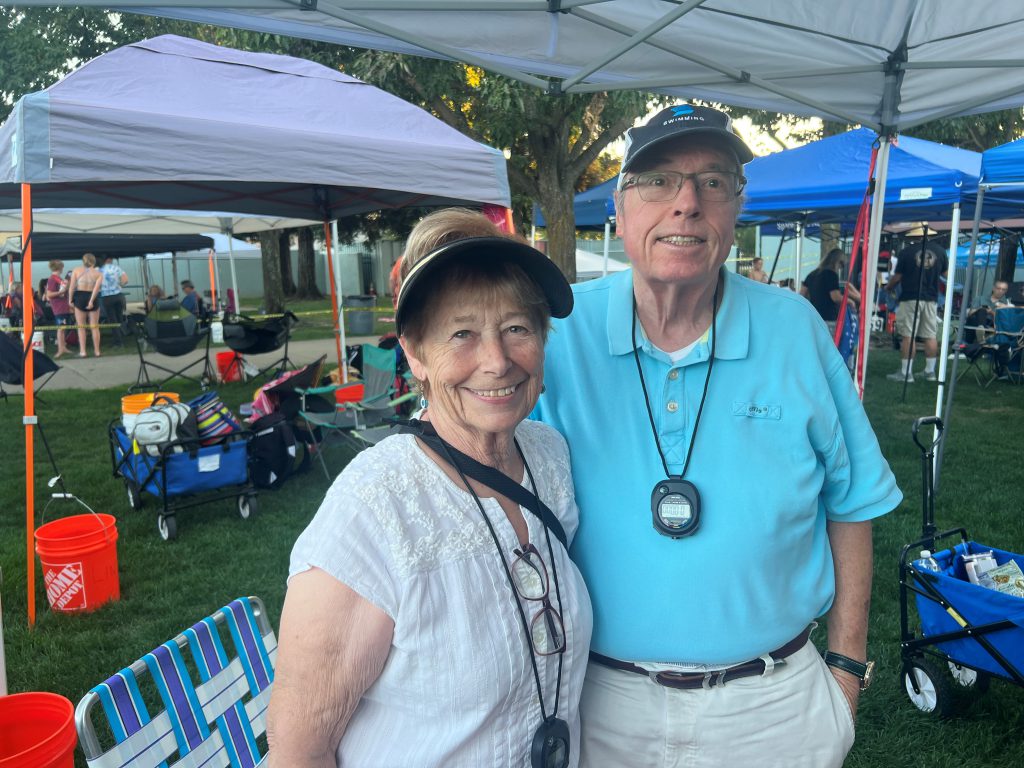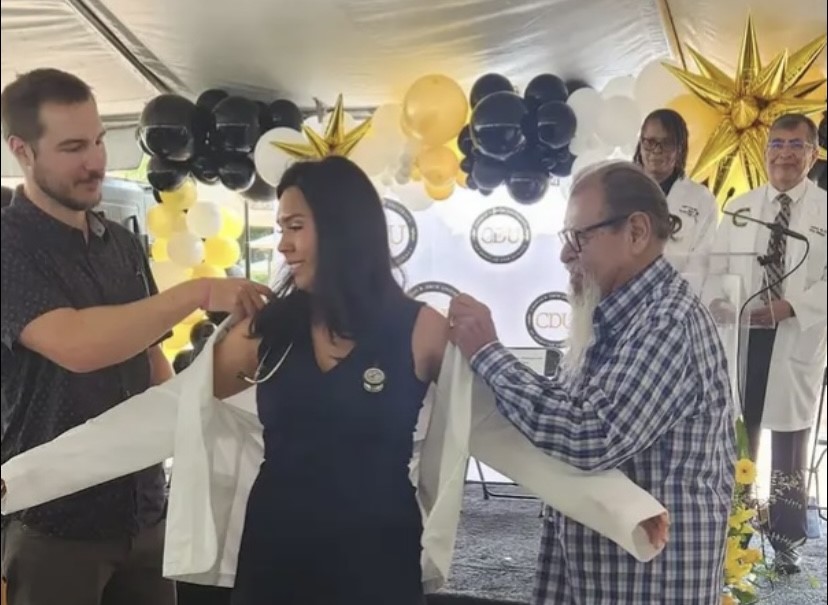During Hispanic Heritage Month (September 15 to October 15, 2023) we celebrate the history, cultures, contributions, and achievements of those with Hispanic/Latino heritage in the U.S. In celebration, the Vitals team reached out to members of the Sutter Health community to learn more about what their heritage means to them and how it plays a role in their lives.
Alejandro (Alex) Aguilar-Torres, Sourcing Recruiter, Talent Acquisition & Planning
- Please tell us a little bit about yourself and the role your Hispanic heritage plays in your life.
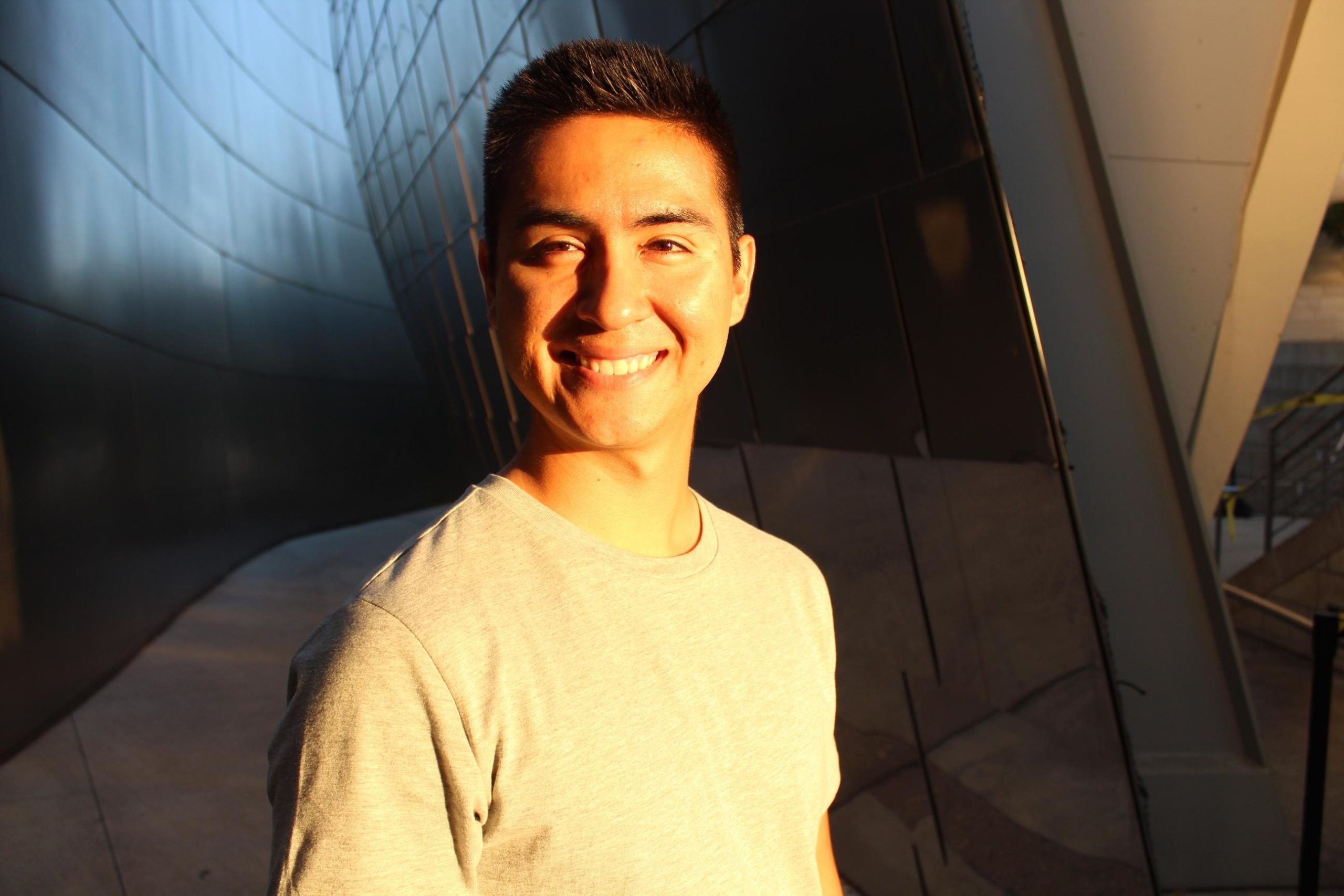
Alejandro (Alex) Aguilar-Torres, Sourcing Recruiter, Talent Acquisition & Planning
I’m the oldest of three siblings and the proud son of Mexican immigrants. In 2018, I graduated from Sacramento State University, which was a huge milestone for me and my family.
Our journey began in a beautiful little town in Jalisco, Mexico called Tamazula. It holds a special place in our hearts, rich with culture and tradition. From there, my parents and I embarked on a life-changing journey that led us to the suburbs of Ripon, California, nestled in the Central Valley.
Growing up in a Hispanic household in the United States while maintaining strong ties to our Mexican roots has been a unique experience. I was fortunate to be raised by two incredibly hardworking parents who placed a high priority on education. My dad, who once plowed fields as a migrant worker and still works in the field today, has dedicated his life to providing for our family.
I am immensely proud of where I come from, and my Hispanic heritage plays a pivotal role in my life, serving as a profound source of inspiration and identity. As the son of Mexican immigrants, I am connected to a rich culture, values and traditions. My heritage instilled in me the values of hard work, determination, and a strong sense of community. It’s a thread that weaves through my story, shaping my character and driving my aspirations.
- Did your heritage influence your decision to go into healthcare? If so, how?
My decision to go into healthcare wasn’t directly influenced by my Hispanic heritage, but rather by the practical aspirations my parents held for me. My parents had a strong desire for their children to pursue careers that offered stability and a comfortable working environment. Their main concern was that we found a job field that didn’t involve physical strain and working outdoors in the sun. My mom, for instance, dreamt that I would work in a clean office space with air conditioning – something she didn’t have the opportunity to experience.
Life has its way of guiding us, healthcare was an industry I became exposed to by chance through my previous job. After leaving that position and as someone based in Sacramento, I aspired to work for the best employer in the city, which for me was Sutter Health.
- Do you believe it’s important for Sutter to have a diverse workforce of physicians and staff, including Hispanic/Latinos? If so, why is it important?
Absolutely, I believe it’s incredibly important for Sutter Health, or any healthcare organization, to have a diverse workforce that includes individuals of Hispanic/Latino backgrounds. Diversity in the healthcare workforce brings numerous benefits that go beyond just representation.
First and foremost, an overall diverse workforce of physicians and staff ensures that the healthcare needs of a diverse patient population are met effectively. Patients come from various cultural and linguistic backgrounds, and having healthcare providers who understand and respect these cultural nuances can significantly enhance patient care. It improves communication, fosters trust and helps patients feel more comfortable seeking care.
Having Hispanic/Latino physicians and staff members is particularly vital in addressing health disparities that affect the Hispanic/Latino community. These professionals can play a crucial role in advocating for equitable care and implementing culturally sensitive approaches that bridge gaps in healthcare access and quality.
Representation also matters in inspiring future generations. When Hispanic/Latino individuals see professionals who share their background succeeding in healthcare, it can motivate them to pursue careers in the field as well. This contributes to a cycle of positive change and increased diversity in the industry.
Selendi Gonzalez Hernandez, Administrative Fellow, Office of the CEO
- Please tell us a little bit about yourself and the role your Hispanic heritage plays in your life.
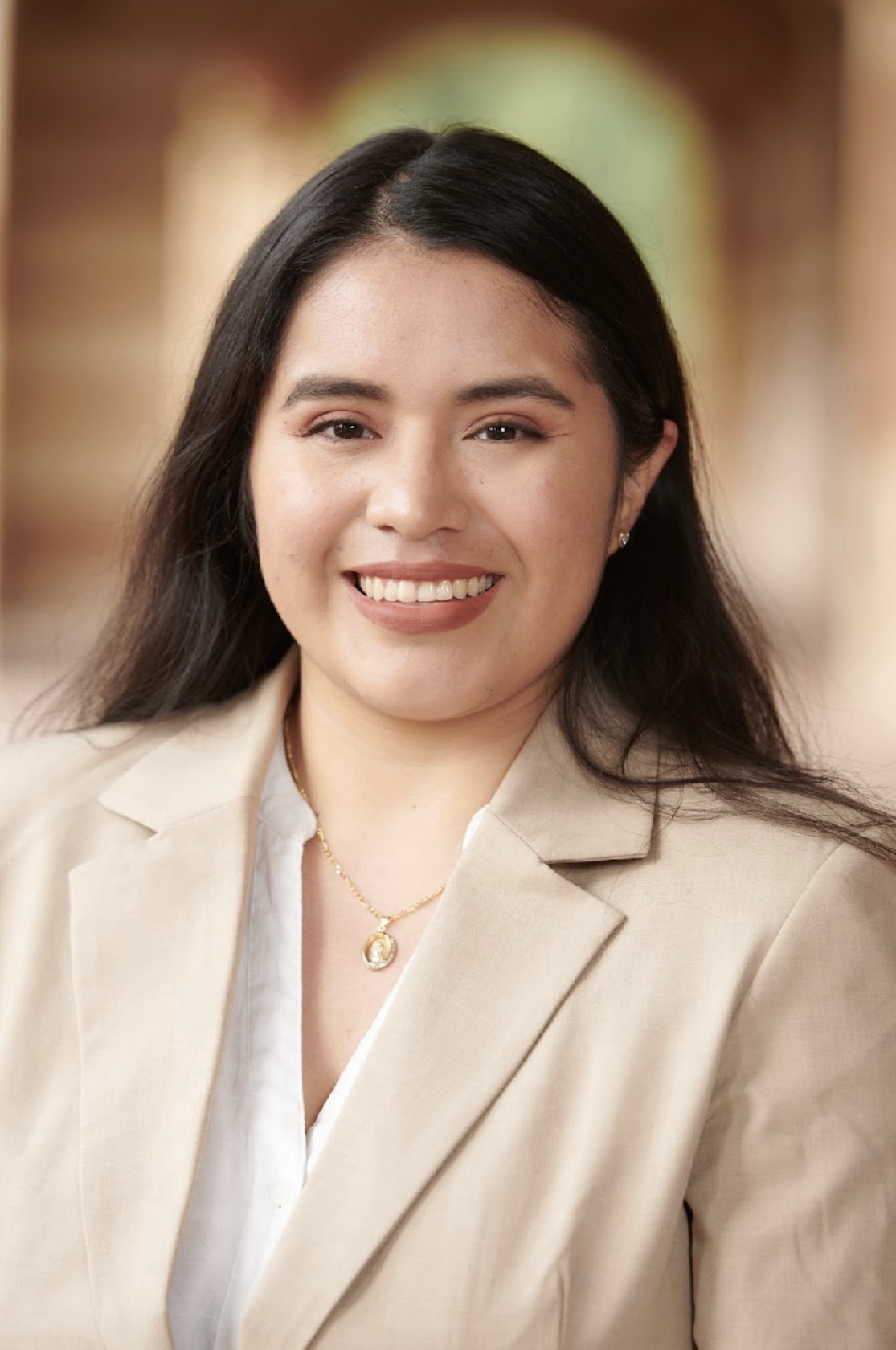
Selendi Gonzalez Hernandez, Administrative Fellow, Office of the CEO
Belonging to a first-generation Hispanic family from Guatemala has profoundly shaped my perspective on life and my sense of identity and future self. I grew up as a child of immigrants and witnessed the profound sacrifices my parents made to secure opportunities for their children to advance in the years ahead. Their sacrifices serve as a testament to the remarkable resilience of my parents, and my community as a whole, to establish a foothold and stability. This unwavering commitment has not only prompted my desire to contribute to my community but has also inspired me to advocate for the needs and aspirations of those who share similar roots to mine.
- Did your heritage influence your decision to go into healthcare? If so, how?
As a Latina, I was instilled with a deep commitment to community and family values. As a result, every choice I make is motivated by its capacity to further the advancement and well-being of these core principles, especially in light of my growing awareness of the unique challenges many individuals from similar backgrounds encounter while navigating the healthcare system. Hence, my mission is not only to participate but also to exert an influence on the transformation of healthcare delivery, making it more equitable and accessible for the Hispanic/Latino community.
- Do you believe it’s important for Sutter to have a diverse workforce of physicians and staff, including Hispanics/Latinos? If so, why is it important?
It is essential for Sutter Health to actively pursue and cultivate a diverse workforce of physicians and staff, with an emphasis on building the representation of Hispanics/Latinos, to enhance the delivery of care. Through the development of a more diverse workforce, Sutter Health will build stronger trust and connections with Hispanic/Latino patients. This, in turn, will encourage community members to seek continuous care, adhere to treatment recommendations and promote increased utilization of preventive healthcare services.
Rodrigo Flamenco, Interpreter, Sutter Medical Plaza Pediatrics Outpatient Clinics
- Please tell us a little bit about yourself and the role your Hispanic heritage plays in your life.
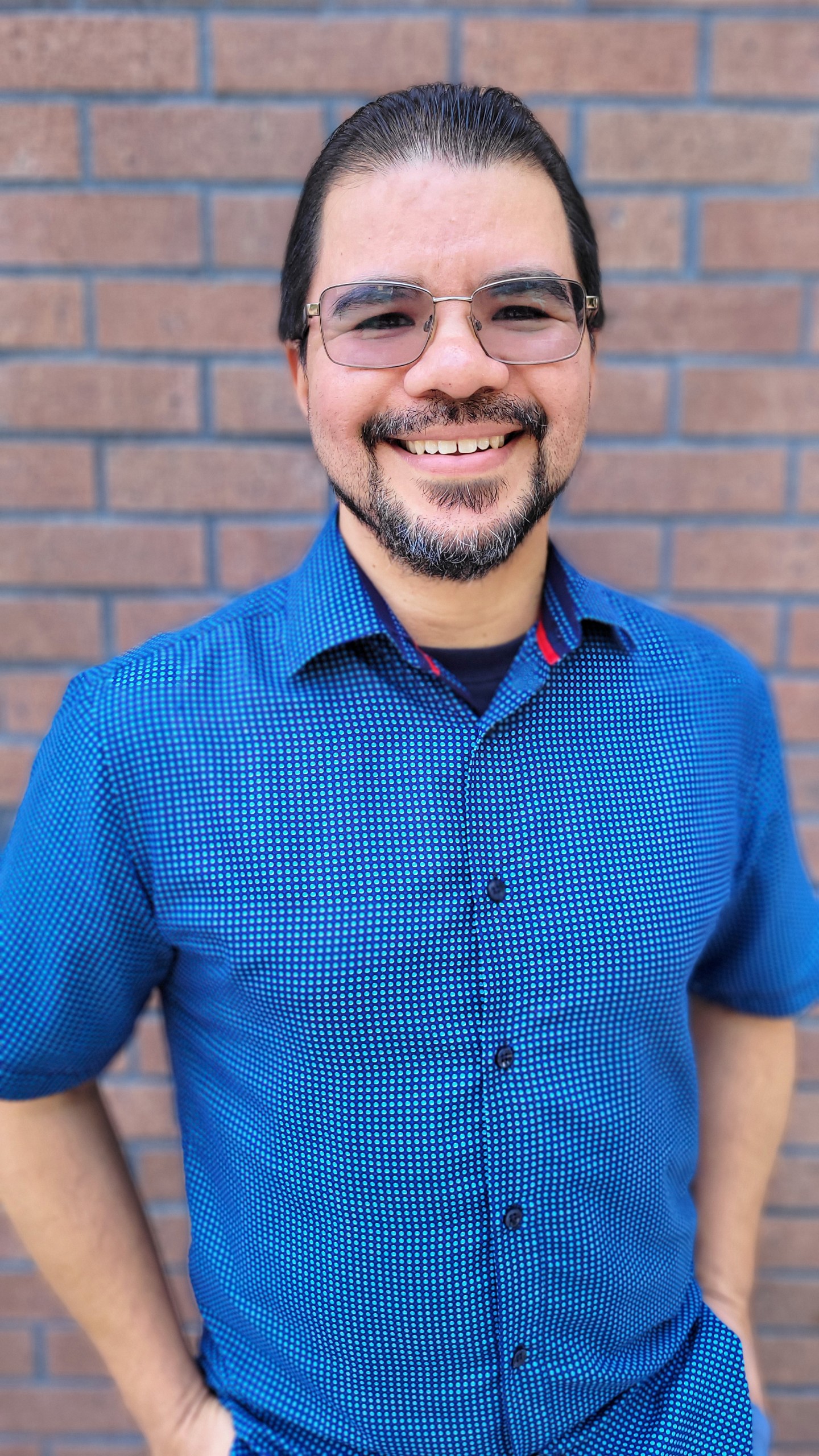
Rodrigo Flamenco, Interpreter, Sutter Medical Plaza Pediatrics Outpatient Clinics
I was born in San Salvador, El Salvador, in Central America. I came to the United States when I was 12 years old, not knowing any English. Currently, I work at Sutter Medical Center as a full-time medical interpreter. I’ve been interpreting for Sutter for over 10 years.
I was blessed to have gone to a good school back in my country and my parents made sure we kept many of the traditions and cultures alive here in this country. Food is a big part of our Hispanic culture and traditions. I’m lucky that my parents were great cooks because throughout the years they cooked traditional meals for us. Education was also very important for my parents. My mother made sure that I kept my Spanish language strong by speaking to me in only Spanish and we could only speak to her in Spanish. She would tell me, “here at home you speak Spanish, and at school you speak English.” With my grandma, we didn’t have a choice but to speak Spanish because she didn’t know English. I am very thankful for my mother’s persistence in that because she imparted to me a special gift of speaking both languages. Now I’m able to use my fluency in Spanish and English to help those who don’t speak English.
- Did your heritage influence your decision to go into healthcare? If so, how?
Learning English for me was a tremendous challenge. It was also a challenge being at a new school in a new country, and not knowing the language.
I can relate to people who don’t understand the language when they come to a doctor’s appointment or to the hospital. I decided to go into the healthcare profession after graduating from UC Davis with a bachelor’s in biological sciences, with an emphasis in microbiology and a minor in religious studies. After the passing of my mom and grandma, I chose to become a professional medical interpreter because I was able to witness some amazingly talented medical interpreters at the hospital. They inspired me to become one, and because I had the skill of being fluent in both languages and the heart to help people, it was an easy choice. So, I went back to school for one year to learn how to be a medical interpreter. Now I have three professions in total (five if you count being a dad and a husband). I am currently a medical interpreter, a pastor, and a photographer, just because I love doing all three (five).
- Do you believe it’s important for Sutter to have a diverse workforce of physicians and staff, including Hispanic/Latinos? If so, why is it important?
Since Spanish is the top language spoken in this country besides English, it is extremely important to have a diverse workforce of physicians and staff to accommodate those who speak Spanish. Back in the day, having an interpreter was a nice-to-have, now, it’s a must-have. Going to the doctor or hospital is scary, intimidating and uncomfortable. Imagine if you couldn’t communicate your symptoms to your medical staff, explain your medical history, or understand the plan of care; you would be lost and frustrated. So having a professional, medically qualified interpreter increases the quality of care for that individual and helps them understand everything in their language. Because Sacramento is one of the most diverse cities in the nation, it is super important to have a medical team that speaks your language.
Maria Moreno, MPH, Program Manager, Sutter Health Institute for Advancing Health Equity
- Please tell us a little bit about yourself and the role your Hispanic heritage plays in your life.
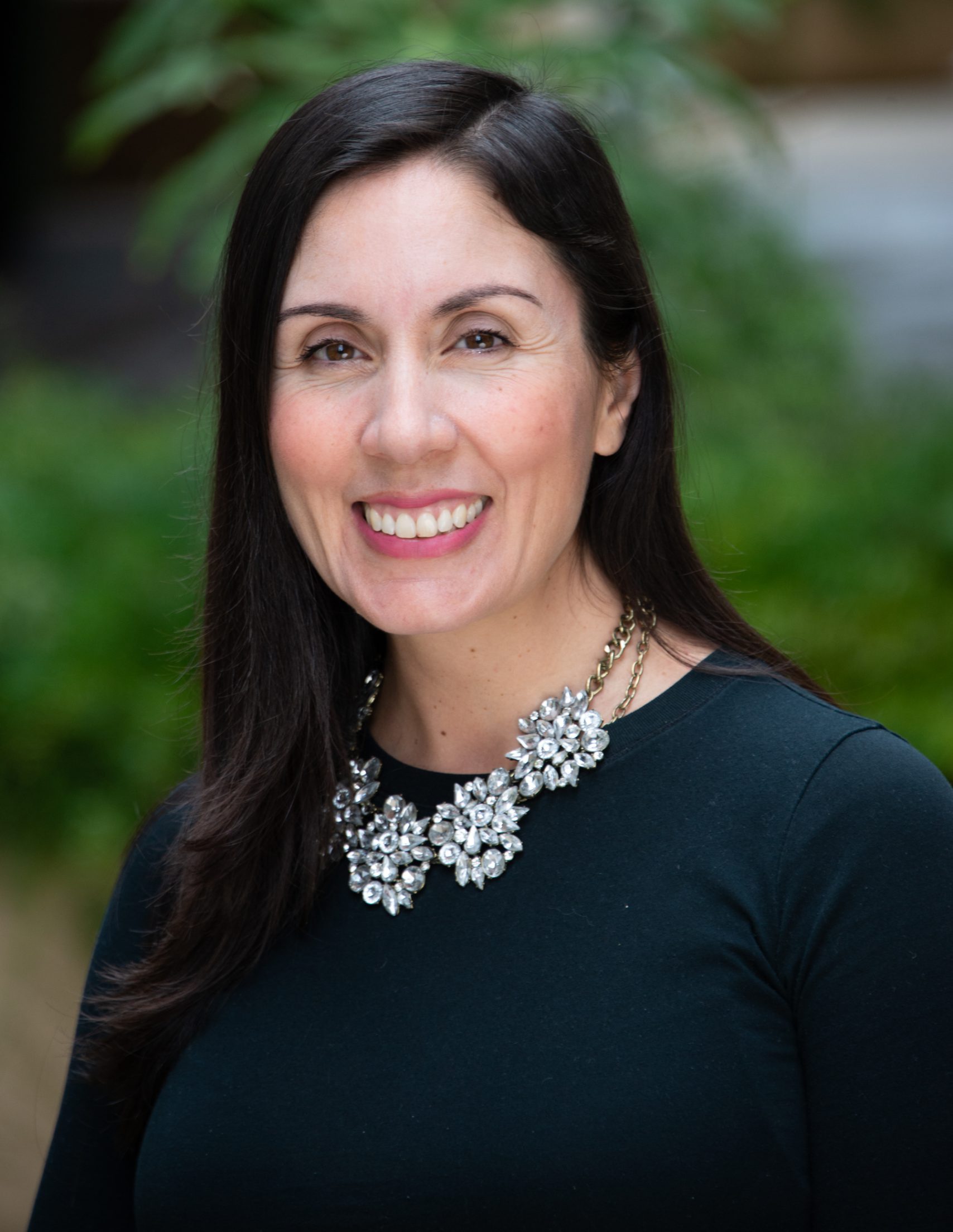
Maria Moreno, MPH, Program Manager, Sutter Health Institute for Advancing Health Equity
I was born in Zacatecas, Mexico, and came to the U.S. to live permanently when I was 7 years old. I have a lot of distinct memories of Mexico, my community and my family there, which have carried over. Examples include speaking fluent (exclusive) Spanish to my two young daughters and teaching them about our cultural traditions and celebrations, frequent gatherings with family and friends, and valuing cultural traditions and community.
Being Latina and of Mexican heritage is a big part of who I am today and has given me the passion and the experiences that have brought me to where I am personally and professionally.
- Did your heritage influence your decision to go into healthcare? If so, how?
My personal experiences as a first-generation immigrant, having to learn a new language and culture, and weave through the intricacies of the U.S. health care system as a large family in the 1980s had a definitive influence on my direction to focus on health equity. I am very proud of the work we are doing at Sutter.
- Do you believe it’s important for Sutter to have a diverse workforce of physicians and staff, including Hispanic/Latinos? If so, why is it important?
In my 20 years at Sutter, I have seen a definite transition to focus more on the needs of our racially and ethnically diverse patients, which in 2003 was about 30% of the population. Today it is over 50% and growing, which is incredible and also more challenging for all health care systems to meet the unique needs of all patients. I think Sutter has done an incredible job in partnering with community leaders and organizations as well as creating teams internally to address health equity including The Institute for Advancing Health Equity, for which I am so proud to bring my personal history. It is important to have a diverse workforce so that we represent the communities we serve and understand how to best provide care and meet their needs. On an ongoing basis, I bring my heritage and personal experience to navigating through the healthcare system to better identify, address and respond to the needs of our communities and patients we serve at Sutter.

